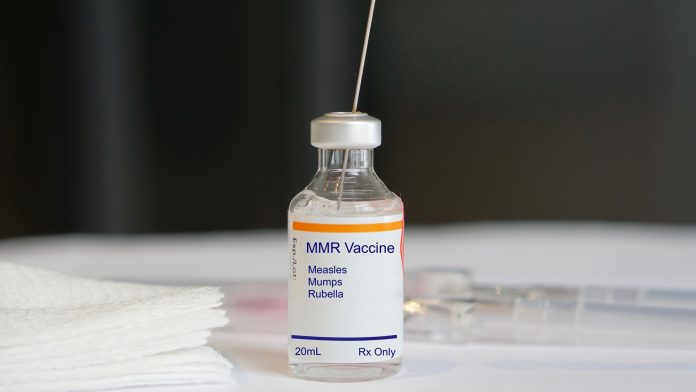
Experts have expressed that MMR vaccine uptake needs to increase significantly to avoid life-threatening disease outbreaks.
The MMR vaccine protects individuals from measles, mumps, and rubella. Professor Helen Bedford at UCL Great Ormond Street Institute of Child Health and Helen Donovan at the Royal College of Nursing are now urging individuals to get their MMR vaccine to prevent outbreaks of disease, stating that two doses of the vaccines and 95% vaccine coverage are essential for optimum protection.
They commented: “Even a small decline in MMR vaccine uptake can herald disease outbreaks.”
Why the MMR vaccine is vital
The researchers outlined that raising awareness among parents on the vast benefits of the MMR vaccine is critical to increasing its uptake. There is no upper age limit for you can receive the vaccine, meaning this extends to unvaccinated young people and young adults.
They explained that in the most recent data from July to September 2021, there was a reported 88.6% uptake of the first dose of MMR for children aged 24 months, with the uptake of two doses at five years being 85.5%, a decline in comparison to previous quarters.
In an effort to combat this decline in uptake, the Office for Health Improvement and Disparities (OHID) has initiated a campaign to increase the uptake of the MMR vaccine in England.
Vaccine Fatigue
Although there is a lack of evidence to support this, the decline in vaccine uptake has been blamed on COVID-19 ‘vaccine fatigue’. This is because despite COVID-19 vaccines being highly effective at protecting people from severe disease, they are not as proficient at preventing transmission, which may have influenced how parents view the importance of routine childhood vaccinations.
Furthermore, lockdown measures that necessitated that people should stay at home may have made parents believe that vaccine services for children were unavailable and were also concerned about overstretching the NHS.
Raising awareness to save lives
The researchers explained that sometimes a successful vaccination programme could be the victim of its own success. For example, because the vaccination drive leads to a reduction in cases of the disease, its absence can make people believe it is no longer a danger, making vaccinations seem unnecessary.
Of the 2000 parents of young children that were recently surveyed, almost 50% were not aware that measles could result in deadly complications. This is highlighted by the fact that between 2018 and 2020, nine children and adults died from measles in England and Wales.
The current focus of the campaign is on measles; however, mumps and rubella still pose a threat, as young adults who do not receive their MMR vaccine may still be unprotected against these conditions.
The tea is confident that a resurgence in vaccine uptake is achievable, as this has already been demonstrated following the dramatic fall of vaccine confidence due to the 1998 MMR vaccine safety debacle. In a survey of 600 parents of young children performed in August 2021, more than 95% said that vaccines are essential for a child’s health.
The researchers concluded: “We must build on this confidence to prevent the re-emergence of these potentially devastating infections.”








